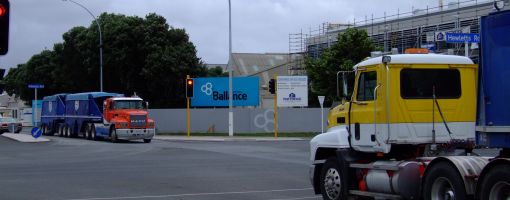
Western Sahara's government in exile accuses the shipping company J. Lauritzen of contributing to theft of natural resources from the occupied parts of the country.
By DanWatch
22 February 2008.
A bulk carrier that is part of the Danish shipping company J. Lauritzen's fleet is today expected to reach Port of Tauranga in New Zealand with a cargo of phosphate from Western Sahara.
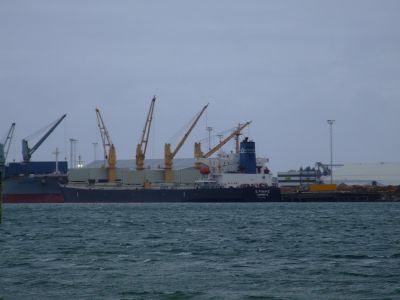
Western Sahara is occupied by Morocco, an occupation that has put the greater part of its population to flight. The UN General Assembly has condemned the occupation, and the UN Secretariat has declared that trade in minerals from occupied countries is in conflict with international law if it does not benefit the local population.
That is not the case in Western Sahara, where Morocco has control of the phosphate mining.
'Ermis' is cited in J. Lauritzen's fleet of bulk carriers but is, according to the shipping company's managing director, Jens Ditlev Lauritzen, hired from a Greek shipping company and further rented out to the Korean shipping company Korean Lines.
Sidi Omar represents POLISARIO, Western Sahara's government in exile, in Great Britain and Ireland and has previously been Western Saharas representative in Denmark.
He is strongly critical of businesses being involved in trade in phosphate from Western Sahara - also even when the shipping company in question only provides delivery of the transport:
“It has been going on for several years that foreign companies have been purchasing our phosphate. Whether it is a question of a Greek-, a Danish-, or a Korean-controlled ship, all three parties are contributing to theft,” Sidi Omar claims.
“This is not just a matter of what is legally correct but what is ethically justifiable. And this is a matter of theft of resources that belong to Western Sahara's indigenous population.”
Colonel Kurt Moesgaard has recently returned home from his appointment as head of MINURSO, the UN's peace-keeping force in Western Sahara. “Western Sahara is occupied by Morocco, and as long there is no solution to the problem, it will be in conflict with the UN's recommendations to bring raw materials out of the country,” he told DanWatch.
At the UN, Western Sahara is treated as Africa's last colonial issue. More than 150,000 of Western Sahara's indigenous population, the Sahrawis, are at present in refugee camps in Algeria.
Morocco has for many years been criticized for breaches of human rights, torture, and persecution of the indigenous population still living in Western Sahara.
Western Sahara's primary resources are fish and phosphate, but today both the fishing and the mining operations are controlled by Morocco. Morocco and Western Sahara together have control of more than 60% of the worlds phosphate, which is used to fertilize fields.
From open mines in Bu Craa the phosphate is transported by means of a 100-km-long conveyor belt to the port city Laayoune (Moroccan-French name of El Aaiun), where it is loaded onto ships and sent further out in the world.
According to information DanWatch has obtained from the harbour authorities in Port of Tauranga in New Zealand, 'Ermis' has arrived precisely from Laayoune in Western Sahara.
The Norwegian shipping company Arnesen Shipbrokers was last year exposed to be sailing with phosphate from Western Sahara, which forced the shipping company to stand forth and promise never to do it again.
Jens Ditlev Lauritzen considers, however, that J. Lauritzen does not have any responsibility in the situation: “We have transferred the contract conditions from the Greek owner to the contract that Korean Lines has signed,” Jens Ditlev Lauritzen said.
He does not wish to comment on whether the Danish shipping company has an ethical responsibility for what the renter - in this case, Korean Lines - wishes to carry as its cargo.
“The case is parallel to the trade with blood diamonds,” according to Sune Skadegaard Thorsen, who is a partner in Lawhouse, which advises a series of big international firms and international institutions on corporate social responsibility (CSR).
"The Danish shipping industry is a little behind the times when it comes to ethical responsibility. On the basis of the letter of the law, it is possible that no fault can be found with Lauritzen in this case. But even if the shipping company is not legally responsible for what their customer uses the ship for, they still have ethical responsibility. Assuming that they themselves believe that they have a social responsibility and that they should contribute to sustainable development," Sune Skadegaard Thorsen said.
At the J. Lauritzen website, the shipping company has written the following about CSR: "In an age of increasing accountability and transparency, it is important for any company to recognize its social responsibilities. The JL name has been synonymous with corporate integrity for over a century. We intend to keep it that way, not only because it makes good moral sense, but also because it makes sound business sense."
Denmark has just strengthened its ties to Western Saharas occupying power, Morocco, in connection with the establishment of a new Danish embassy in the country.
DanWatch recently made an application to the Ministry of Foreign Affairs in order to obtain a clarification of Denmark's attitude to trade and investment in Western Sahara.
Both Sweden and Norway are opposed to trade relations with Western Sahara.
At its website Norway's Ministry of Foreign Affairs writes: "Norway sees it as important to refrain from actions that can be seen as a legitimization of the situation in Western Sahara. In order to prevent trade, investments, resource exploitation and other forms of business that are not in accordance with the local population's interests and accordingly can be in violation of international law, the Norwegian authorities discourage such activities."
Carl Bildt, Swedens Minister of Foreign Affairs, made a similar statement in connection with a question in the Swedish Parliament last year.
Hans Corell, previously chief legal advisor at the UN, who is considered to be the leading expert on legal questions about Western Sahara, wrote in 2002 as follows in a recommendation to the Security Council on the exploitation of natural resources in Western Sahara:
“In recognition of that people who live in territories without self-determination have the indisputable right to the natural resources in their territory, the General Assembly has repeatedly denounced the exploitation and the plunder of natural resources and other economic activities that are in conflict with the interests of these territories' populations and which deprive them of their legitimate rights to their natural resources.”
DanWatch awaits at present an answer from the Ministry of Foreign Affairs with regard to Denmark's attitude to trade and investment in Western Sahara.
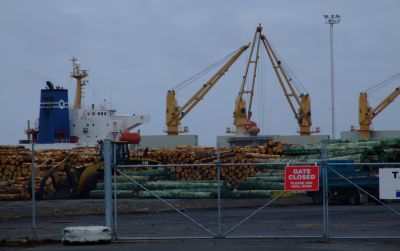
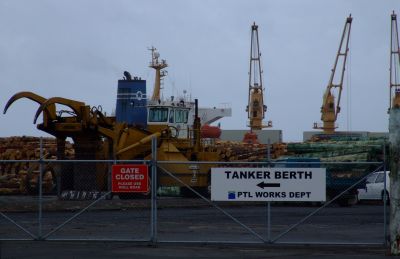
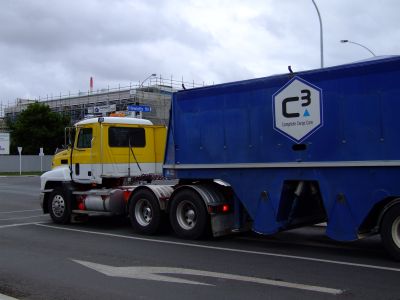
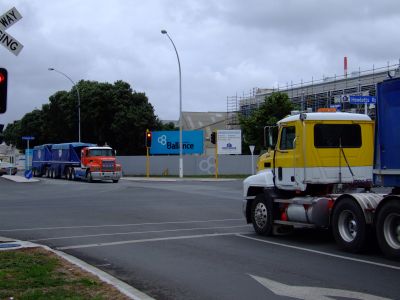
NY Check new Western Sahara poster!
“Try to Visit Western Sahara”…
The Security Council fails Western Sahara and international law
On 31 October 2025, a new resolution was adopted in the UN Security Council calling on the Saharawis to negotiate a solution that would entail their incorporation into the occupying power, Morocco.
Saharawis Demonstrate Against Trump Proposal
The United States has proposed in a meeting of the UN Security Council on Thursday that the occupied Western Sahara be incorporated into Morocco.
Skretting Turkey misled about sustainability
Dutch-Norwegian fish feed giant admits using conflict fishmeal from occupied Western Sahara. Last month, it removed a fake sustainability claim from its website.



